Curious Questions: Why can't red and grey squirrels live together?
Championed by HRH The Prince of Wales himself, the red squirrel revival is gathering pace all over the UK. But why can they not live alongside their grey relatives? Kate Green explains.

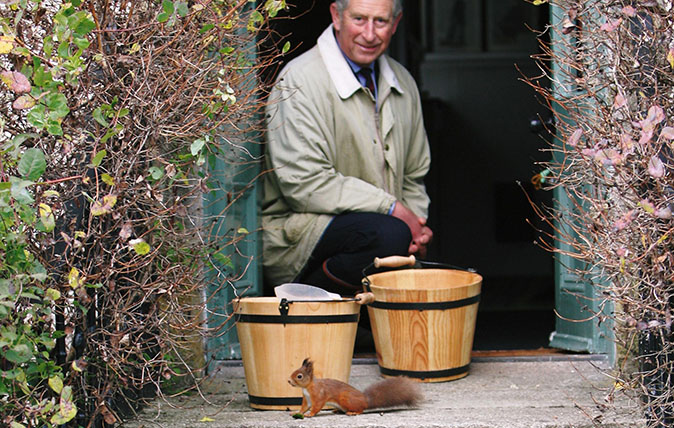
The last time a wild red squirrel was spotted in Cornwall was in 1984; most of Britain’s 140,000 are in Scotland, but there are also pockets in the north of England, Wales and on the Isle of Wight.
By contrast its nemesis, the grey squirrel, numbers 2.5 million. They have been pushing out the native species for years, but major efforts are coming together thanks in large part to the Red Squirrel Survival Trust, formed in 2009 with The Prince of Wales as patron. The heir to the throne is a great lover of red squirrels, allowing them into his house in Scotland, leaving nuts for them to find and even – according to Prince William in an interview with Country Life this week – naming them.
Why can't they co-exist, though? The grey were innocently introduced to England in 1876 as an ornamental addition to the landscape, but had managed to infiltrate most of southern Britain – including Cornwall – by about 1950.
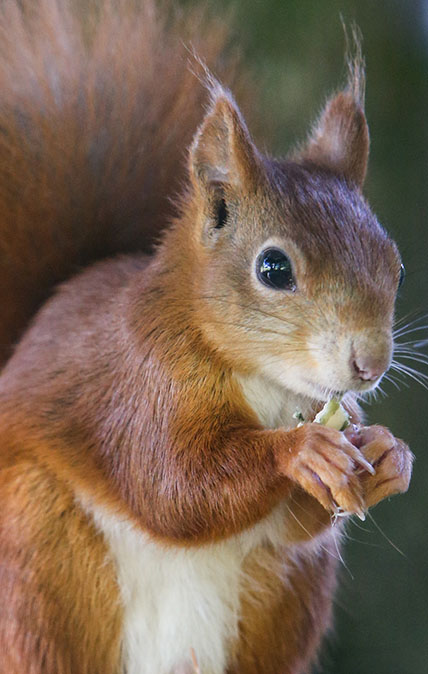
As its natural habitat was the North American landmass, and freezing winters kept numbers down naturally, its impact on woodland and other species had gone largely unnoticed, but it can travel 10 miles a day, so its takeover of a small island was inevitable.
Grey squirrels, categorised by the International Union for Conservation of Nature as one of the 100 worst invasive species, easily out-compete reds for food.
They weigh about twice as much and naturally spend three-quarters of their day foraging on the woodland floor – their visibility was one of the original attractions – whereas the red spends most of its time up a tree.
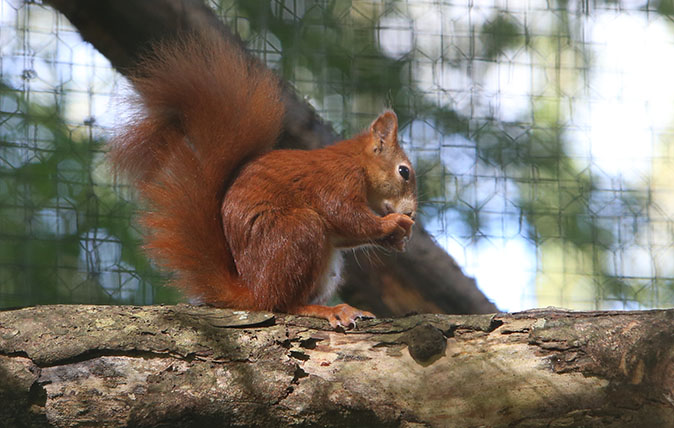
In autumn, the grey can increase its body weight by 20%; the red struggles to increase by 10%. When an animal can’t gain weight, it fails to breed – there are suspicions that grey squirrels impact on other species, such as dormice, in this respect.
Exquisite houses, the beauty of Nature, and how to get the most from your life, straight to your inbox.
Other wildlife charities have researched the greys’ predatory impact, especially on fledgling numbers, but publication of findings has been hampered by lack of funding.
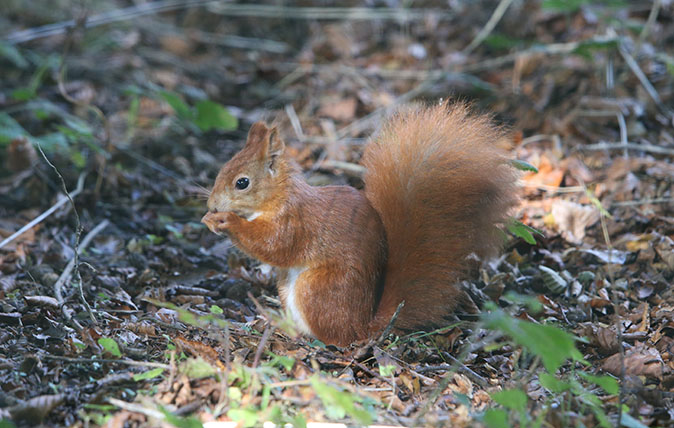
The major factor in the red’s decline is squirrel pox, which greys carry and spread, but don’t suffer from. Ian Hampton, who has been working with the Cornwall Red Squirrel Project, uses the analogy of a human flu sufferer: ‘If someone came into a packed room with flu, the germs would quickly transmit to everyone, but if there were only two people in the room, they wouldn’t.’
The red squirrel has one advantage, however: it can run away more quickly from the pine marten, a predator, which is why a project reintroducing pine martens to Wales is under way.
Grey squirrels can be culled under a 2015 EU regulation on the management of such species and the Wildlife and Countryside Act 1981. There’s also immunocontraceptive technology, which is used in pork production, but getting it licensed and practical for administration in the wild could take decades.
To find out more about Ross, Demelza and the Cornwall Red Squirrel Project, visit www.cornwallredsquirrels.co.uk.

A look inside HRH The Prince of Wales' guest-edited issue of Country Life
Country Life's issue of 14 November 2018 has been guest-edited by HRH The Prince of Wales in honour of his
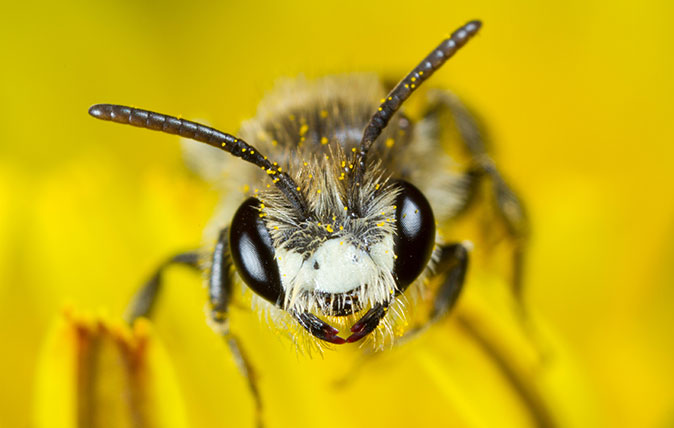
Credit: Alamy
Curious Questions: Are bees really busy?
We've all used the phrase 'busy as a bee' – but is it justified? Or are bees just as liable

Curious Questions: What is the perfect hangover cure?
If there's a definite answer, it's time we knew. Martin Fone, author of 'Fifty Curious Questions', investigates.

Credit: Alamy Stock Photo
Curious questions: Do dogs like listening to music?
As a nation of dog lovers, we’ve already seen home-cooking for canines, ‘pup cakes’ and Pawsecco. Now, we’re composing music
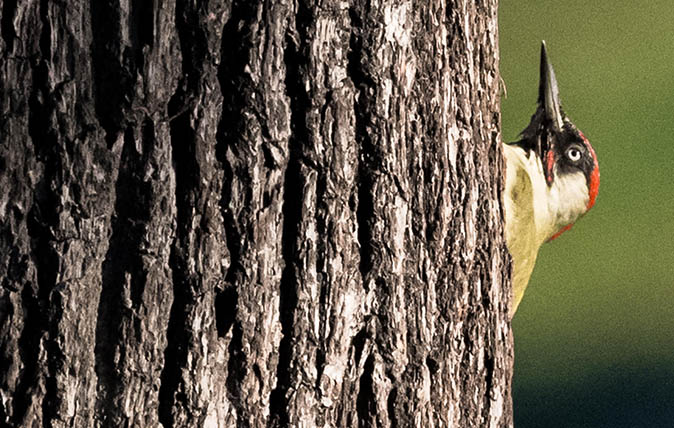
Curious Questions: Why don't woodpeckers hurt their heads?
Woodpeckers submit their poor heads to punishment which would devastate most creatures, yet as far as we know they fly

Credit: Rex
Curious Questions: Why do we still use the QWERTY keyboard?
The strange layout of keyboards in the Anglophone world is as bafflingly illogical. Martin Fone, author of 'Fifty Curious Questions',
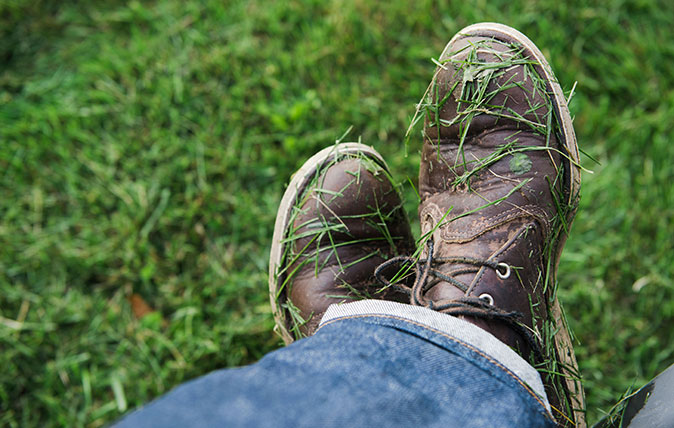
Credit: Alamy
Curious Questions: Why does freshly-mown grass smell so good?
Nothing says 'Spring is here' better than that wonderful aroma of newly-cut lawn. Martin Fone, author of 'Fifty Curious Questions',
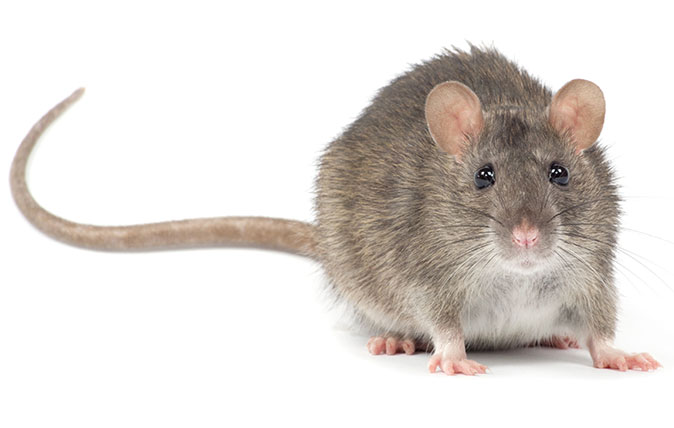
Credit: Alamy
Curious questions: Are you really never more than six feet away from a rat?
It's an oft-repeated truisim about rats, but is there any truth in it? Martin Fone, author of 'Fifty Curious Questions',

Credit: Alamy
Curious Questions: How can you tell if the Union Jack is upside down?

Credit: Alamy
Curious Questions: Why do you wake up just before the alarm goes off?
Kate is the author of 10 books and has worked as an equestrian reporter at four Olympic Games. She has returned to the area of her birth, west Somerset, to be near her favourite place, Exmoor. She lives with her Jack Russell terrier Checkers.

